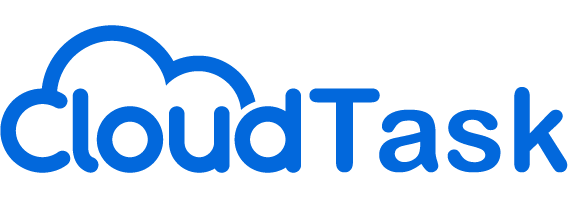Is your business ready to move up a gear? If you’re looking to grow, reach new markets and/or become more efficient, outsourcing sales can give you an opportunity to infuse your business with new life.
While many think of outsourcing as a common option for call centers or IT development, outsourcing sales can actually help all types of businesses grow. Companies that use outsourcing report benefits including cost reduction, efficiency improvement and headcount reduction.
As Deloitte’s Global Outsourcing Survey 2018 puts it, outsourcing can help a company become more efficient whilst creating positive disruption by “incorporating emerging technologies to drive innovation, speed to market, enhanced user experience, and improved performance.”
Efficiencies Created Through Outsourced Sales
The truth of the matter is, you can’t do it all. It’s better to be really good at a few things than to spread yourself and your resources too thin. By outsourcing all or a portion of your sales programs, you can dedicate your in-house resources to other projects while ensuring your sales efforts continue to be optimized.
According to Bridge Group Research, annual attrition for sales reps can be as high as 34%.
Bigger Talent Pool
The job market is competitive and unemployment numbers are low. So what does that mean for your business?
Typically, when unemployment is low, it can prove difficult to hire and retain high-quality employees. In a field like sales in particular, the always-on personality that is required to be successful can also be prone to burnout and exhaustion from the demands of the job.
According to Bridge Group Research, annual attrition for sales reps can be as high as 34%. When you consider the time it takes to bring on those sales team members, train them and get them out into the field, the prospect of building up a well-qualified team can be extremely discouraging.
Outsourcing sales provides an opportunity to work with a sales team that’s already in place, and to remove the headache of recruiting, training and retaining your own sales force. Working with an outsourced sales firm allows your business to invest and prepare for the future by strategically determining which sales functions will benefit your business, then building a plan that ensures team members with those critical skill sets are at the ready.
Maintaining Skill Sets and Getting to Market Faster
With the speed of technological innovation, new software and resources pop up regularly. Keeping on-staff team members trained and up-to-date on using these technologies can prove costly from a time and resource perspective.
Outsourcing some of these sales functions means you can work with knowledgeable professionals to get projects off the ground quickly, rather than waiting for your own workforce to be appropriately trained and proficient in these areas.
And, your eggs aren’t all in one basket, so to speak, when it comes to training employees who may not choose to stay invested in your company. When they leave, their institutional and platform-based knowledge leaves with them; not so with outsourced sales, where your outsourcing partner will have a knowledgeable team member on deck for you at all times.
Ability to Specialize Resources
Specialization is at the heart of sales efficiency. Allowing your employees to do what they do best, while partnering with an outsourcing firm to allow them to use their specialized skills, is an excellent way to begin building efficiencies in the sales process.
Just because you haven’t found the perfect in-house employees to staff your sales team doesn’t mean you have to wait to grow. Outsource the portions that make sense in order to continue building your overall business.
As an example, lead generation requires a different skill set from the one required to close the deal. Outsourcing a portion of this function, allowing experts in the field to build your bank of leads, gives your team the ability to focus on closing and to attentively manage and alleviate any concerns that may prevent the buyer from taking those last steps to close.
Impact of Technology on Sales Processes
The transformative effect of technology on the sales cycle cannot be overlooked or denied. Where in the past, a salesperson might keep a Rolodex of local clients and dedicate months to landing one or two on their list, technology has expanded the potential reach for sales teams, as well as affected the way salespeople interact with teams.
Rapid Rise of Technological Advances
With a host of innovative resources available, it can be difficult to determine which sales and marketing efforts fit your business’s needs. Marketing automation, social connectivity, data-driven lead targeting – all of these technologies and more far surpass the often-derided cold calling of yesterday.
While many resources are available on the business side to make selling easier, technological advancements have also placed additional power in the hands of consumers. CloudTask references “leading instead of luring” when it comes to building relationships with potential customers precisely because there are so many resources available to them.
You want to make the customer feel like the technology and resources available to connect with them are improving the experience, not bogging it down.
Increased Buyer Involvement and Interaction in the Sales Process
The easy accessibility of online information has made it possible for buyers to play an active role in the product review process.
Rather than lining up a couple of pitches and making an “in the room” decision, buyers dedicate their time to analyzing product information and reviews online. In fact, according to CEB, 77% of B2B purchasers said that they would not even speak to a salesperson until they had done their own research.
Social networks are one key area where buyers check in for information, poring through reviews, collecting information and potentially even contacting your customers or your competition’s customers to get the scoop on what you’re offering.
Buyers who are investing their time in social research may take longer to convert because they’re conducting their own processes to make their way through the sales funnel. Building or outsourcing a strong social sales network can be to your business’s benefit, because then you’re present and engaged in the same realm where potential buyers’ ongoing research is taking place.
According to CEB, 77% of B2B purchasers said that they would not even speak to a salesperson until they had done their own research.
Is It Time to Consider Outsourced Sales for My Business?
When you’re considering whether to add outsourced sales to your business’s arsenal of tools and services, you may want to consider what type of services you’re offering, your business model and the resources your outsourcing partnership can provide.
What Types of Businesses Can Benefit from Outsourced Sales?
The short answer to that question is: any business. Any business can benefit from taking a look at their sales processes, focusing their efforts and working with experts to ensure their resources (whether time or talent) are being used in the most effective way.
However, these types of businesses may be especially conducive to outsourced sales partnership:
Tech Startups
Businesses in the startup ecosystem are typically run on tight budgets. The “eat what you kill” mentality puts these businesses in a bind where they must choose between pouring funds into aggressively pursuing sales, and working on a shoestring budget when it comes to staffing.
Outsourcing sales can help tech startups to scale faster and start filling their business pipeline, which enthuses investors, without investing excessively in sales staff recruitment and retention.
Companies Selling Complex Products
While some buying decisions may be a snap, every business purchasing choice isn’t as simple as choosing standing desks or ergonomic keyboards.
When it comes to complex products, like software, data infrastructure and healthcare management, buyers don’t want to make a snap decision.
Buying teams are getting bigger, with the average firm including 5.4 people in the decision-making process, according to Harvard Business Review. Purchasing processes can take weeks or months, as multiple business units become involved and layers of due diligence are completed.
Outsourcing sales for complex products can make sense because your buyer spends more time in the sales funnel. It can be challenging for a handful of in-house team members to keep prospects engaged and nurture them appropriately, where outsourced sales teams can provide the resources to do both.
Companies Looking to Scale By Entering New Markets
Getting up to speed in a new market can take time and resources that your company may not be able to develop immediately. Getting a sales team that understands the culture and can work quickly to build relationships isn’t always as easy as it sounds.
The costs associated with a new market are substantial, from securing physical space to working with attorneys to comply with laws and regulations specific to the area.
According to Forbes, many companies try to launch their new business ventures by simply transporting staff from their main location and expecting them to adapt to the new market’s business climate, or using valuable time and resources to build a team from scratch, both of which can be “time consuming, risky, and [slow] time to market.”
An outsourced sales team can help you grow your business’s new branch more quickly and efficiently. You take on lower risk by using a team that already understands the country’s business landscape, and you spend less time and money on recruiting qualified team members to serve as your dedicated on-the-ground resources.
According to an article in the Harvard Business Review, buying committees are getting bigger, with the average firm including 5.4 people in the decision-making process.
What Services Does an Outsourced Sales Firm Offer?
Outsourced sales firms offer a full array of products and services that can help their clients, from getting the lead to closing the deal.
Their teams will have specific members tasked with collecting or creating leads, determining their propensity to buy (qualifying the leads) and nurturing them through ongoing contact and education. Examples of services and tactics used include:
Telemarketing
The idea of outbound calling makes many businesspeople groan. They’d rather put their resources to work in a less awkward situation than a cold call.
However, outbound calls still have their place in the sales ecosystem, and working with an outsourced team can shift that burnout-inducing burden away from your core sales and marketing group.
Outsourced sales firms can work with you to develop personalized triggers for generating an outbound sales call, rather than just going through a list of businesses at random. They can also help you build a strategy to base calls around specific potential benefits and pain point alleviators for the buyer, instead of a one-size-fits-all approach to calling.
Social Selling
Incorporating social selling means having resources available online and at your buyer’s fingertips – such as articles on your website and other relevant online forums, curated content on social media channels, and an expert presence on LinkedIn – in order to continue to work with them through the sales process and fill the role of a trusted advisor for their business.
Creating connections on LinkedIn, in particular, can be used to target appropriate prospects and begin building relationships with them. We recommend using LinkedIn as an avenue to showcase your expertise by sharing relevant content, as well as networking and engaging with potential clients as a thought leader.
When the time comes to make their final purchasing decision, cultivating a relationship by listening and keeping in close (but not overwhelming) social and online contact can help you convert them and secure their loyalty for your product.
Email Marketing
Outbound sales teams will help you develop a host of business resources, and email marketing is just one of the ways they’ll help you connect with consumers.
Email may not seem as relevant in today’s business atmosphere of instant messages, video calls and social connectivity. However, 86% of professionals still prefer to use email to communicate for business purposes, and a majority of marketers consider it a primary channel for lead generation.
Chat
Offering a chat feature as part of outsourced sales can help buyers feel engaged and empowered when communicating with your sales team. Chat provides immediate gratification for product shoppers who have questions, but who may still be in the information-gathering stage and not ready for the implied pressure of a sales call.
Research shows that customers feel most satisfied during their buyer’s journey when using a live chat feature (92%), compared to voice (88%), email (85%), and even social media messaging (Facebook 84%, Twitter 77%).
Chat can serve as a valuable gateway into a relationship with a potential buyer. A chat conversation can lead to a follow-up by email or phone with a related article or a suggestion related to a specific business pain point, which serve to continue nurturing the budding relationship.
Research shows that customers feel most satisfied during their buyer's journey when using a live chat feature (92%), compared to voice (88%), email (85%), and even social media messaging (Facebook 84%, Twitter 77%).
Omnichannel Sales
While each of these tactics can be useful in starting and strengthening relationships with potential buyers, the most successful organizations will find a way to combine all of these sales channels to build cohesive programs and generate results.
Omnichannel sales strategies have been proven to work because of the wide variety of ways consumers are now able to access data and information. According to the Harvard Business Review, almost three-quarters of all buyers review information and evaluate product through multiple channels or touchpoints.
Companies that only make a call, or only offer a chat service, will still be able to close sales; however, companies that combine resources in a multi-layered, omnichannel approach will be able to generate leads, qualify and nurture them, and have a higher probability of getting the “yes” and closing the deal.
How to Kick Off Your Outsourced Sales Efforts
Once you’ve determined outsourced sales may be a good fit for your organization, the next step involves syncing up with a reputable sales provider and putting your program in place.
However, before you even begin conversations with potential business partners, you’ll want to ask some questions on your side to make sure your team’s vision will be realized.
Transitioning sales opportunity building to an outsourced team is a great way to help your organization grow and scale, but you won’t realize the full benefit unless you do some pre-planning and have a good understanding of what you hope to achieve through the partnership.
Determine the Scope of Your Outsourcing
When you’re planning to work with an outsourced sales firm, you’ll need to decide what portion of the sales process you want to hand over.
Some firms may outsource their sales efforts completely, while others may require support with lead generation, then hand the leads over to a senior in-house team member to close the deal. Still others may choose a specific service to outsource within the sales process.
If you’re not ready to roll out a full omnichannel strategy, sales chat can be a great option to begin building your outsourced sales repertoire. Chat allows you to easily engage potential buyers who are still at an early point in the sales process.
When potential buyers review your website, they are looking for answers and they want to get those answers without a big commitment of time and resources. According to Amir Reiter, CEO of CloudTask, “Chat gives buyers the ability to raise their hand, to tell you who they are and where they are in the sales cycle … It gives them the ability to get what they want now, instead of going through the standard sales process.”
Chat creates a two-way conversation and allows your potential buyers to feel in charge of the conversation.
Ensure Your Efforts Align
Account-based thinking is a sophisticated method of building relationships in order to derive success. In this approach, sales teams connect with purpose -– using educational resources, social channels and nuanced, personalized communications to create lasting bonds.
Instead of going broad with your sales development efforts, account-based thinking focuses on using a wide variety of resources to target prospects with potential and build profitable relationships, not just make deals.
Using an account-based approach means making sure everyone’s on board and in alignment, from marketing to sales development to account managers. Keeping teams isolated is a threat to your success because it can create gaps in your messaging or create unwieldy handoffs between business groups.
Sitting down with your outsourced sales team is invaluable in this process. You should focus on providing definition around the potential clients they should target, then making sure there’s room to discuss and clarify tactics needed to be successful in this approach.
Set Goals for Achievements on Both Sides of the Table
Setting goals for your new outsourced sales team is a must. However, at the same time, you should give some thought to goals for your in-house team. With the additional bandwidth that’s freed up through an outsourcing partnership, you should be able to redirect resources to other projects that could use specialized attention, such as:
Focusing on data analysis and trend review
Diving more deeply into your company’s financials, web traffic and other numbers can be profitable for you, and it can help you come up with additional information to inform your outsourced team’s efforts. You can put your resources toward identifying the data and determining your plan of action, then put it in their hands to help you implement.
Using in-house staff to focus on landing bigger clients
When you have a multi-million dollar deal on the line, you may want to make sure that final presentation and handshake is undertaken by you and your senior leadership team. By allowing your outsourced team to handle lead generation and relationship building, you’re free to devote your resources to sealing the deal with marquee clients.
Improving service for existing customers
With fewer resources being dedicated to the sales side of the business, your team will be able to spend more time and energy on making sure your existing clients are happy. It’s far more costly to acquire a new client than to maintain a relationship with an existing one. And, ongoing customer service matters; 7 in 10 Americans said they were willing to spend more with companies they believe provide excellent customer care.
What You Need to Get Started
If you’re ready to consider outsourced sales, there are a few areas where you’ll want to focus your energy prior to signing a contract. By dedicating some time and thought to this new business partnership, and by communicating those thoughts clearly, you’ll be more likely to achieve satisfying and sustainable results.
Service Level Agreement
When working with any external partner, a Service Level Agreement is a key part of building the initial engagement.
You’ll want to work together with your outsourced sales partner to establish your business norms, as far as how you’ll handle the transition from their team members to yours, how quickly you expect leads to be contacted and other pertinent details.
Clearly Articulated Performance Expectations
Your outsourced sales partner will want to do a great job for you and your business. However, your definitions of “great job” may differ.
Make sure you spend time at the beginning of the process talking with your partner about what you hope to achieve and whether those results fit within industry norms. Every company dreams of securing double-digit annual growth, but your outsourced sales partner will be able to tell you what’s typical for businesses with a value proposition similar to yours.
If you have an idea of what you’d like to see as a result of this partnership, make it known, whether it’s generating a certain number of leads, planning a specific set of sales calls or opening up opportunities in a new region.
Enthusiastic Executive Support
In the same way that you should get your expectations in sync with your outsourced sales partner, you’ll want to spend time winning over executive support within your firm as well.
Getting buy-in on an unfamiliar concept can take time. If your company hasn’t worked with outsourced sales before, you’ll want to spend some time determining what success looks like to your senior leadership team.
Provide them with clear goals, objectives and milestones that you expect the outsourced program to help you reach. Then, offer frequent communication updates on small wins you’re able to generate with your outsourcing partner as a way to secure their long-term support.
A Thought-Out Onboarding Process
One of the top things you can do to ensure success with an outsourcing partnership is to invest additional time during the initial stages of the relationship, according to research conducted by Deloitte.
It can be tempting to just jump right in and expect the outsourced sales firm to get the leads rolling, but you’ll receive a more satisfactory result if you take time to think through the onboarding process and the way you attract and nurture potential clients.
A thorough understanding of your processes on your own side is crucial. Because you’ll be removed slightly from day-to-day processes, it will be extremely important that you know the process well enough to make adjustments based on analysis of synthesized data.
If you don’t fully outline your processes and your sales funnel, it will be difficult to explain it properly to your outsourced partners, to make adjustments and to determine where additional success comes from.
When it comes to getting the sales team on board, get their agents up to speed on your company’s value proposition.
Make sure they absorb the key knowledge areas related to your business. They don’t need to know every single technical aspect of the product, but they need to be conversant and knowledgeable if buyer questions or pain points arise.
You should also ensure they understand your business’s culture. If your company prides itself on being an advocate, a thought leader, or an innovator, make sure those traits and your company’s core values are reflected in communications they create for you.
Choosing a Provider That’s Right for You
If you’re ready to kick off the process of outsourcing your sales efforts, you’ll want to identify a provider that fits your needs and can provide proven success.
What Services Do They Provide, and How Do They Align With Your Needs?
Each business has areas that make them unique. When you’re seeking to partner with an outsourced sales firm, you’ll want to make sure the services they can offer fit with your company’s culture and business goals:
Are you selling internationally?
If so, you’ll want to be sure your sales messaging and approach translates to the cultures you’re trying to reach.
Do you need staff available around the clock?
If so, you’ll want to partner with an outsourced sales provider that can make team members available for contact with potential clients at any hour of the day, whether through marketing automation or through 24/7 chat services.
Do you know who your prospects are, or do you need your provider to help you determine potentially profitable clients and revenue opportunities?
If so, choose a provider with experience in data analysis and with staff knowledgeable in the implementation of these tools on your behalf.
What Resources Do They Allocate for You?
Outsourced sales companies are about more than just phone calls. In our technology-based business world, you need to make sure your sales team has the resources and experts needed to create success and maintain it.
Your outsourced sales team should encompass more than a group of entry-level staffers with a list of contacts to cold call. Some roles that may be necessary on your outsourced sales team include:
Customer Success Manager
This manager works with the sales team to review and optimize performance. They are the liaison between you and your sales team, and it’s their responsibility to identify opportunities to improve, as well as to manage issues that arise before they can affect your team’s performance.
Business Development Representative
The BDR seeks to connect with leads and set up conversations or appointments. They are the first point of contact and may approach potential clients by phone, email or social connections. They may request a meeting or may initially offer to share information resources and establish themselves as an expert and a trusted advisor in your client’s mind.
Quality Assurance Analyst
These team members continuously review content and communications with your sales prospects to ensure interactions are positive, productive and on-message, then provide recommendations to the content writer and team on potential improvements.
Corporate Trainer
Provides guidance for outsourced sales success by training your sales team on your company’s protocols, developing team members’ communication skills and helping them focus on key areas that benefit your business.
Content Writer
Creates the messaging used to attract and nurture leads and prospects. Content writers focus on providing clear communications pieces that can be used to build relationships, including emails, online content, social selling pieces, phone scripts and more.
Sales Chat Representative
Your first line of online communication, these team members connect with web visitors to answer their questions and gauge their interest, converting them to qualified sales leads in the process.
What Successes Can They Share?
While outsourced sales firms may not be able to divulge their full client list, they should be able to highlight key successes and offer examples of clients they’ve been able to successfully serve.
As an example, CloudTask forged a successful partnership with Ipswitch, an IT management software developer.
The B2B company sought a product that could help them get a handle on their qualified leads and convert them more successfully. However, their staffing levels were inadequate to contact all marketing leads to convert them into sales leads and eventually into customers.
Ipswitch saw great success when partnering with CloudTask’s managed sales function, using outsourced sales team members to nurture relationships and move their leads further down the sales funnel. A team of outsourced sales reps were able to set about 62 appointments a week and to boost about 90 inquiries to qualified leads per month, all of which helped Ipswitch continue to grow their business.
In addition, the company implemented Sales Chat as part of their outsourced sales platform and was able to rapidly capitalize on advances there as well. Through Sales Chat, Ipswitch generated over $4.5 million worth of opportunities in 2018 and closed $1.2 million of the opportunities generated. Their ROI soared and they saw a 5.2X increase in return on their outsourced sales investment.
How Quickly Can You Get Up and Running?
There’s no one-size-fits-all when it comes to roll out time for an outsourced sales team. While most businesses likely think, “As soon as possible!” the truth is that the timeline for getting started with a sales program can vary depending on:
Which resources you plan to implement?
If you’re planning to use one specific tool, like a sales chat function, the rollout for that offering may be quicker than if you’re implementing a full sales arsenal.
Which programs you already have in place?
If you already have a marketing automation platform, you’ll want to make sure its efforts are not running in a separate silo from your outsourced sales team.
If you already employ data analysts, involving them in the process can be fruitful as well?
Take a look at all your existing customer touch points to determine whether they are in line with your planned sales approach or what changes might be necessary to keep all your efforts moving seamlessly toward the same goal.
How much of your efforts will move to the outsourced sales team?
In this situation, additional time needs to be dedicated to determining the criteria for your handoff point. You need to think about whether you’re ready for your in-house team to take over the process, and what information they’ll need passed to them from the outsourced group in order to be successful.
How much training is required?
Think 80-20 when it comes to training for your outsourced sales team. They may not need to know everything about your business, although you certainly want to make sure they’re knowledgeable and prepared to connect with potential buyers. Instead, make sure they are hyper-knowledgeable on the areas most likely to be highlighted by potential buyers, then develop a plan to escalate complex questions to your in-house team if necessary.
Wrap Up
In summary, for companies aiming to expand their horizons, tap into new markets, or streamline operations, sales outsourcing emerges as a compelling strategy to consider. Businesses leveraging this approach often witness significant advantages, such as reduced costs, heightened efficiency, and a leaner team structure. By integrating sales outsourcing, not only can you elevate your company’s efficiency but also catalyze innovation, harness emerging technologies, and expedite market entry—all culminating in an enriched user experience and superior performance.








